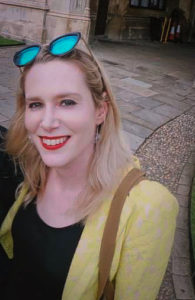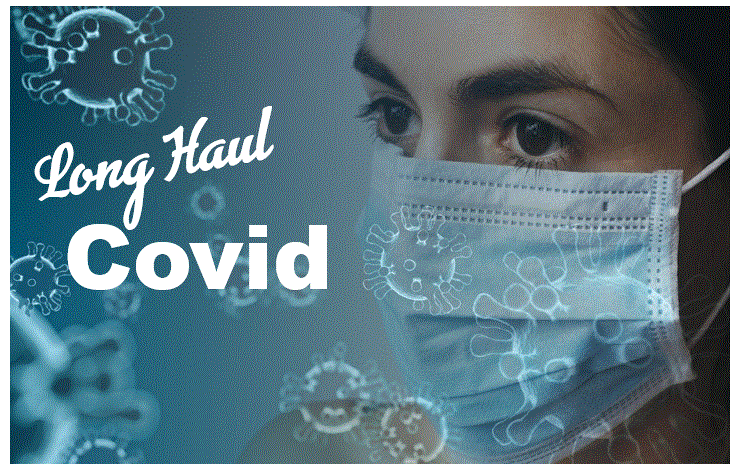WiRED Releases Two Modules on Long-Haul COVID-19
An Often Misunderstood Post-Virus Condition
By Allison Kozicharow; Edited by
What is long-haul COVID-19?
Long-haul COVID-19 — Post-Acute Sequelae of SARS-CoV-2 infection — occurs when patients who have been infected with the virus experience new, recurring or ongoing symptoms four or more weeks after infection, sometimes after initial symptom recovery. These post-virus conditions constitute a lack of return to a usual state of health after the COVID-19 illness. Symptoms include fatigue, shortness of breath, “brain fog,” sleep disorders, fevers, gastrointestinal symptoms, anxiety and depression. They can persist for months and range from mild to incapacitating. In some cases, new symptoms arise well after the time of infection or evolve over time.
WiRED International recently launched two modules on long-haul COVID-19 entitled Long-haul COVID Overview and Evaluating and Caring for Patients with COVID Long-haul Conditions.
[Symptoms] can persist for months and range from mild to incapacitating. In some cases, new symptoms arise well after the time of infection or evolve over time.
- Long-haul COVID Overview is designed for general audiences and describes the condition, the effects of the illness and hospitalization, new or ongoing symptoms and current research. Because there is still so much to be learned about long-haul COVID, WiRED will update the module as needed.
- Evaluating and Caring for Patients with COVID Long-haul Conditions is an interim guidance created for healthcare workers to provide patient-centered care for post-COVID-19 issues. The module explains how to: care for patients in an outpatient setting, keep patients’ medical and social history, give physical examinations and take vital signs, carry out assessments and testing, manage patients’ conditions, follow public health recommendations, offer COVID-19 vaccines when available and promote preventive care.
- WiRED also offers The Coronavirus Threat: Key Topics in Infection Control series, which not only describes the coronavirus, but touches on topics such as coping with stress, how the immune system works and handwashing to prevent infectious diseases. Related diseases, such as pneumonia and influenza, are also covered.
Research and information on COVID-19 is evolving daily. Consequently, WiRED will update and revise our materials related to the coronavirus on an as-needed basis. As always, WiRED’s materials are free to all and available to download and share.
Long-haul COVID-19 in the News
Experts around the world are working to learn more about short and long-term health effects associated with COVID-19, who gets them, and why. So far, there are more questions than answers sparking the need for further research.
Consider the following:
- The National Institutes of Health announced a $1.15 billion initiative to study long-haul COVID.
- The New York Times reported that anecdotal evidence suggests some long-haul COVID sufferers can get relief or cured after receiving mRNA vaccines for COVID-19.
- A Yale School of Medicine study is probing the effects of vaccination on people with long-haul COVID.
National Public Radio cited new studies showing “superhuman” or “hybrid immune response” in people who contracted COVID-19 in 2020 and then immunized with mRNA vaccines in 2021.
My Experience with Long-Haul COVID-19
By Nicola Kozicharow, Ph.D. In April 2020, I contracted COVID-19 during my fellowship at the University of Cambridge. I was the fittest I had ever been thanks to exercise and healthy eating and had never had any serious health issues, but suddenly I could barely get out of bed due to crushing fatigue and had a fever for seven weeks. You feel as if you’re wading through molasses: every movement is difficult and slow, and even walking across the room to fill a glass of water is a challenge. Each day I had to decide if I should shower, cook or do the dishes as I only had enough energy to do one in a 24-hour period. Thankfully, I had a support system at my college, Trinity Hall, and friends, colleagues and staff helped preserve my mental health. While no medicine could help, everything from daily phone check-ins with the college to the glorious pink birthday cake my neighbors baked for me did much for my spirits. For months afterwards, I experienced lasting long-COVID symptoms, including brain fog, debilitating fatigue, chills, muscle twinges, and a strange fizzing sensation over the skin. I only felt almost 100% better after I was vaccinated in April 2021 with the Moderna vaccine — one year after getting the virus.
In April 2020, I contracted COVID-19 during my fellowship at the University of Cambridge. I was the fittest I had ever been thanks to exercise and healthy eating and had never had any serious health issues, but suddenly I could barely get out of bed due to crushing fatigue and had a fever for seven weeks. You feel as if you’re wading through molasses: every movement is difficult and slow, and even walking across the room to fill a glass of water is a challenge. Each day I had to decide if I should shower, cook or do the dishes as I only had enough energy to do one in a 24-hour period. Thankfully, I had a support system at my college, Trinity Hall, and friends, colleagues and staff helped preserve my mental health. While no medicine could help, everything from daily phone check-ins with the college to the glorious pink birthday cake my neighbors baked for me did much for my spirits. For months afterwards, I experienced lasting long-COVID symptoms, including brain fog, debilitating fatigue, chills, muscle twinges, and a strange fizzing sensation over the skin. I only felt almost 100% better after I was vaccinated in April 2021 with the Moderna vaccine — one year after getting the virus.
Dr. Kozicharow is a professor and lecturer in art history, and the daughter of Allison Kozicharow, WiRED Board member.


